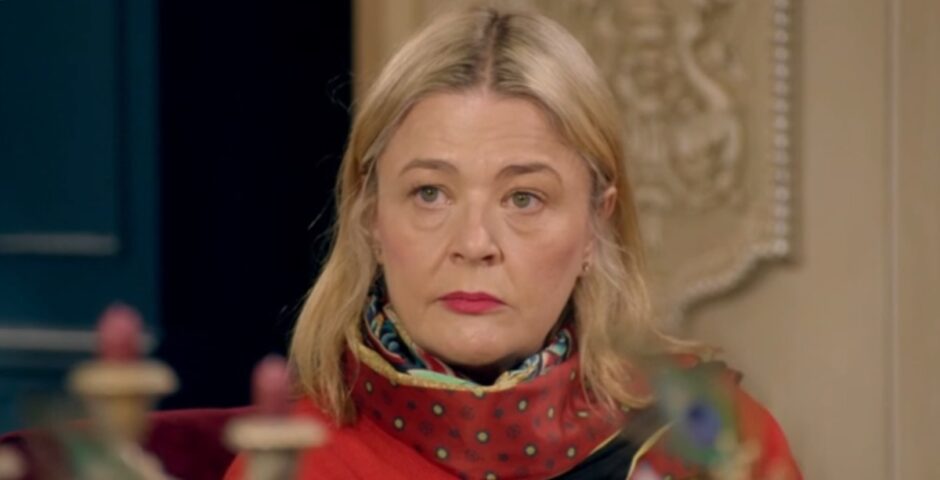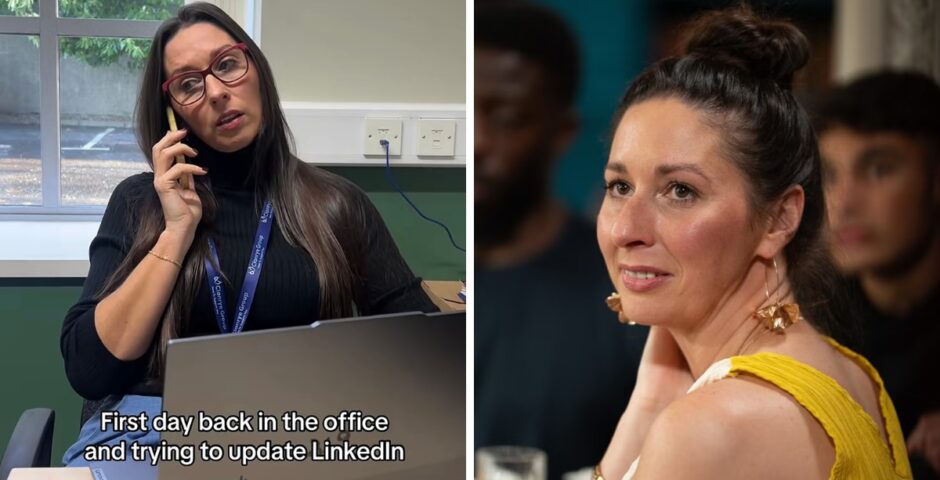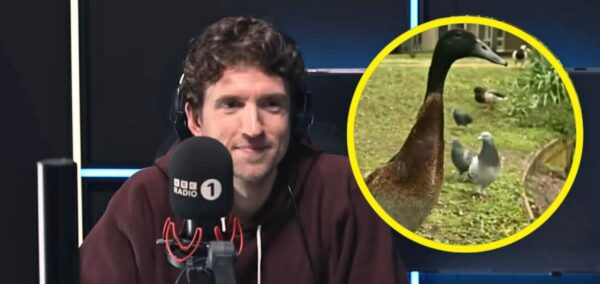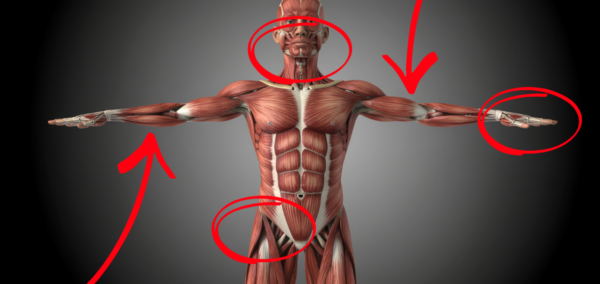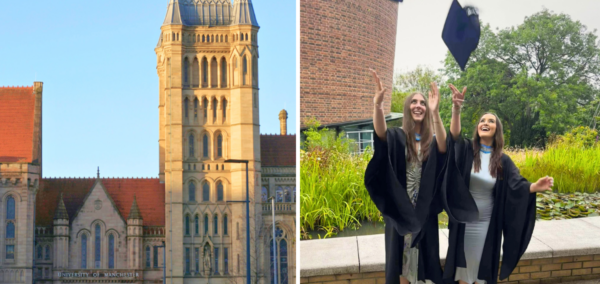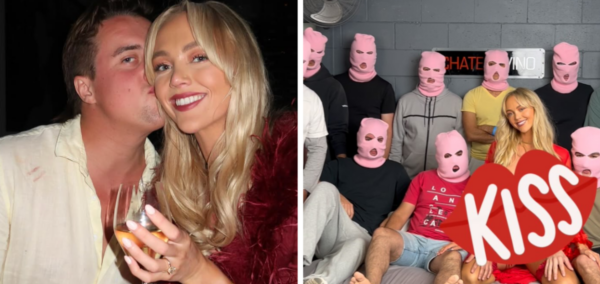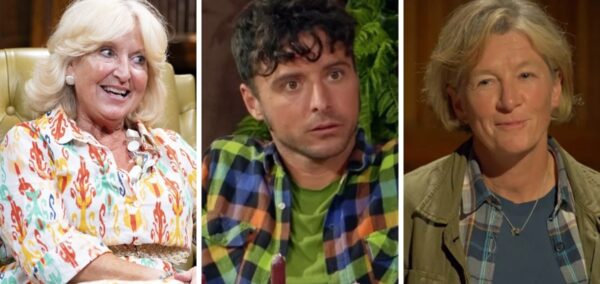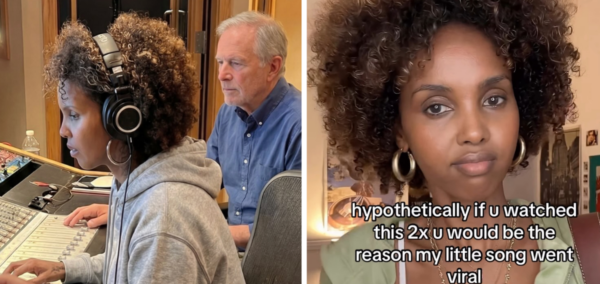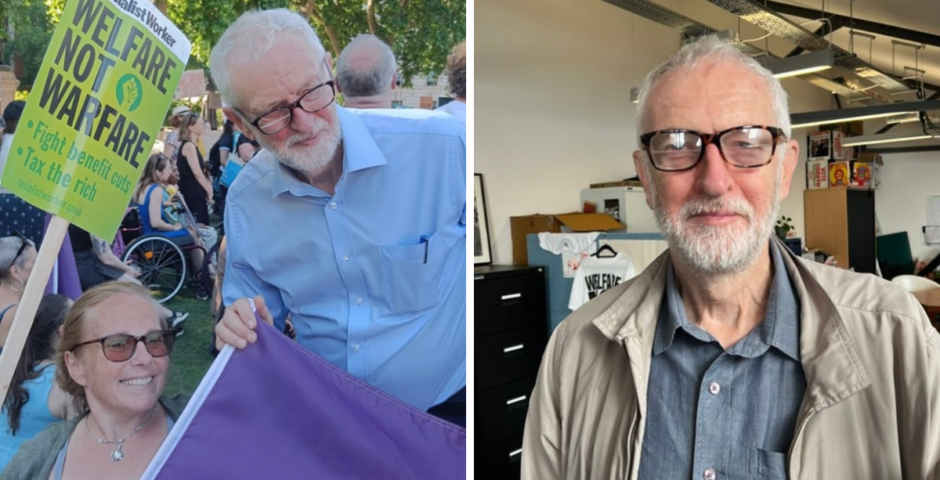
‘End student fees’: Jeremy Corbyn on his campaign and ending student poverty
Why is Corbyn running as an independent, and what does he think about the issues that matter to you?
On May 24th, 75-year-old Jeremy Corbyn, announced he would stand as an independent candidate for Islington North, after he was prohibited from standing as a Labour candidate last year.
The London Tab spoke to Jeremy Corbyn to talk about his campaign, ending student poverty, and the golf ball typewriter.
Corbyn said the Labour Party under Starmer has “too much top – down decision making.”

He also said Labour’s economic policy fails to deal with “fundamental injustices” in our society.
“Something has got to change,” he said.
“The local Labour party was denied a choice of candidate. I was prevented from even offering my name as a candidate for Islington North.” He said.
Hours after Corbyn announced his candidacy, Labour announced Praful Nargund as the Labour candidate for Islington North.
Mr Nargund is a Labour councillor and former Chief Executive of abc ivf, a chain of 15 private fertility clinics founded by his mother.
In a statement, Nargund promised to be “a truly local MP, that represents all families and businesses that call this special place their home.”
He added: “Only Labour can change the country and fix 14 years of Tory failure.”
Mr Nargund’s appointment was met with some controversy, since all candidates for the nomination dropped out before Labour members could vote for their preferred candidate.
Jeremy Corbyn told The London Tab that Nargund was “just imposed by an unnamed panel of three people meeting in secret in the Labour Party head office.”
“This is modern democracy.” He added.
Pushed for further comment on Nargund, Mr Corbyn said: “I don’t know him. I don’t think I’ve ever met him (…) He’s only been a Labour councillor for a couple of years.”
Most Read

A poster hanging from “Gadz cafe” in Islington North
The London Tab primarily met with Jeremy Corbyn to discuss student issues.
A report conducted by Russel Group Student’s Unions found that one in four students regularly go without food or necessities, because they can’t afford them.
The Cost of Living Report found that students from marginalised communities were especially likely to report regularly going without food.
The report said: “higher education during the cost of living crisis is becoming increasingly unaffordable to any students except those from the most advantaged backgrounds.”
Asked how to solve this problem, Mr Corbyn said the UK should abolish tuition fees, which he said would make university more accessible to young people.
He said: “End student fees. Perfectly possible to do. Yes, it would cost. But it would mean university would be a genuine choice for every young person.”
He also called for the government to reintroduce maintenance grants, where students are given money they don’t have to pay back to spend on essentials at university, so that “there isn’t a discrimination where those that can go to the bank of Mum and Dad can go to uni and the rest can’t.”
Jeremy Corbyn said students he’d spoken with at London Met had to resort to working overnight as security workers.
He said: “Some of them had been working all night in security and then coming into study, and you can’t sustain that.”
“How can you study if you’re existing on four hours sleep?” He added.
Under current guidance, international students and their dependants are counted as part of the UK’s target to reduce net migration.
On this issue, Jeremy Corbyn said: “They are not immigrants in the sense of counting immigration figures. They are people that have come here, actually, to pay quite a lot of money.”
He added: “I think a lot of overseas students have actually a very bad experience here.”
He said the struggles of overseas students had “really come home,” to him when he visited a foodbank in Newham at the end of covid.
Mr Corbyn said the foodbank was “completely dominated,” by overseas students.
“Queue all the way down the road- 3/400 people queuing,” he added.
“Families have made huge sacrifices and gained nothing. It’s just wrong.” He said.
Corbyn also said that in 2019, he had been in talks with the President of Mexico “about how we would use it as a starter model of having an optional second year in a different country.”
He said: “You would do three years of study here but your second year – if you wanted – you could do it in Mexico.”
He then asked: “You don’t fancy a year in Mexico?”

Jeremy Corbyn with Izzy and Mahrukh from The London Tab
Last week, the Government announced plans to stop courses which provide “Mickey Mouse degrees”, courses with high dropout rates, or low estimated earning potential.
INews estimated the courses most likely to be dropped are: “art and design,” “agriculture and food related studies,” “media, journalism and communications,” and “sport related courses.”
The Government has not yet listed which degrees would be closed, but The Times reported that it would affect around one in eight students.
Mr Corbyn described the characterisation of “Mickey Mouse degrees” as “insulting,” and “stupid.”
He said: “There was a time when (London Met’s) main courses were on social studies, women’s studies, trade union studies, Irish history, a whole lot of what the Government would probably call ‘Mickey Mouse’ subjects.”
“They’re not. They’re actually very important,” he added.
Recently, students have formed encampments on university campuses to protest university investment in the arms trade, especially in relation to weapons used in Israel’s invasion of Gaza.
Mr Corbyn said he found universities who refused to meet with protestors “very strange.”
He said: “War is awful. What happened on October 7th is awful. The bombardment of Gaza is awful.”
“What is it that they are concerned about? Students being aware of the inhumanity of this war – therefore protesting about it? What’s the issue here?”
Talking about his experience meeting with university protestors, Mr Corbyn said: “The students I’ve met at LSE and SOAS and other universities all say to me that the university claims to have washed its hands of it – has no direct investment in arms companies.”
“That may be true, but they’re quite happy to invest in hedge funds and investment vehicles which do invest in the arms trade.” He added.
Mr Corbyn said: “This crackdown on student encampments seems to me part of the crackdown on the whole idea of democratic protest.”
“Every MP owes their position in Parliament to the protests of the 19th Century.” He added.
Jeremy Corbyn has been the MP for Islington North since 1982.
Mr Corbyn said today, email makes it easier for constituents to contact him, which he described as “better,” and “more open.”
However, he warned that in his constituency, there is still a “digital divide.”
“Probably a fifth of the community round here don’t use mobile phones, don’t have emails, don’t have access to anything,” he said, adding: “You have to make sure they’re not forgotten.”
“So, I walk around everywhere carrying this… my notebook. Everybody I meet who gives me a problem, I put it in my notebook.”

Speech notes from the previous night when Corbyn had handed in his papers to register as a candidate.
Asked how his job has changed since he was first elected, he said: “technology changes everything.”
“I was the first office anywhere on Seven Sister’s road- get this- to have a golf ball typewriter. You don’t even know what it is, do you?”
He then explained the golf ball typewriter was “a precursor to the word processor, which was the predecessor to the computer.”
Asked for his proudest moment and biggest regret in his time as an MP so far, Mr Corbyn said he had “regrets we didn’t achieve more.”
For his proudest moments, Mr Corbyn listed his defence of the Guildford Four and Birmingham Six; mobilising opinion against the Iraq War; and standing up for “pensioners rights, and the rights of the poorest people in our society,”
He said: “In Parliament, it’s the honour of being able to use the position to ask the awkward questions.”
He later added: “It’s been an absolute honour to represent this community in Parliament. And my services are available in this election for the next Parliament, if that’s what the local people want.”
Jeremy Corbyn is an Independent candidate for Islington North. To find out who’s running for Parliament in your area go to whocanivotefor.co.uk
Register here by June 18th to vote in the general election.
Featured image via Instagram / @jeremycorbyn



